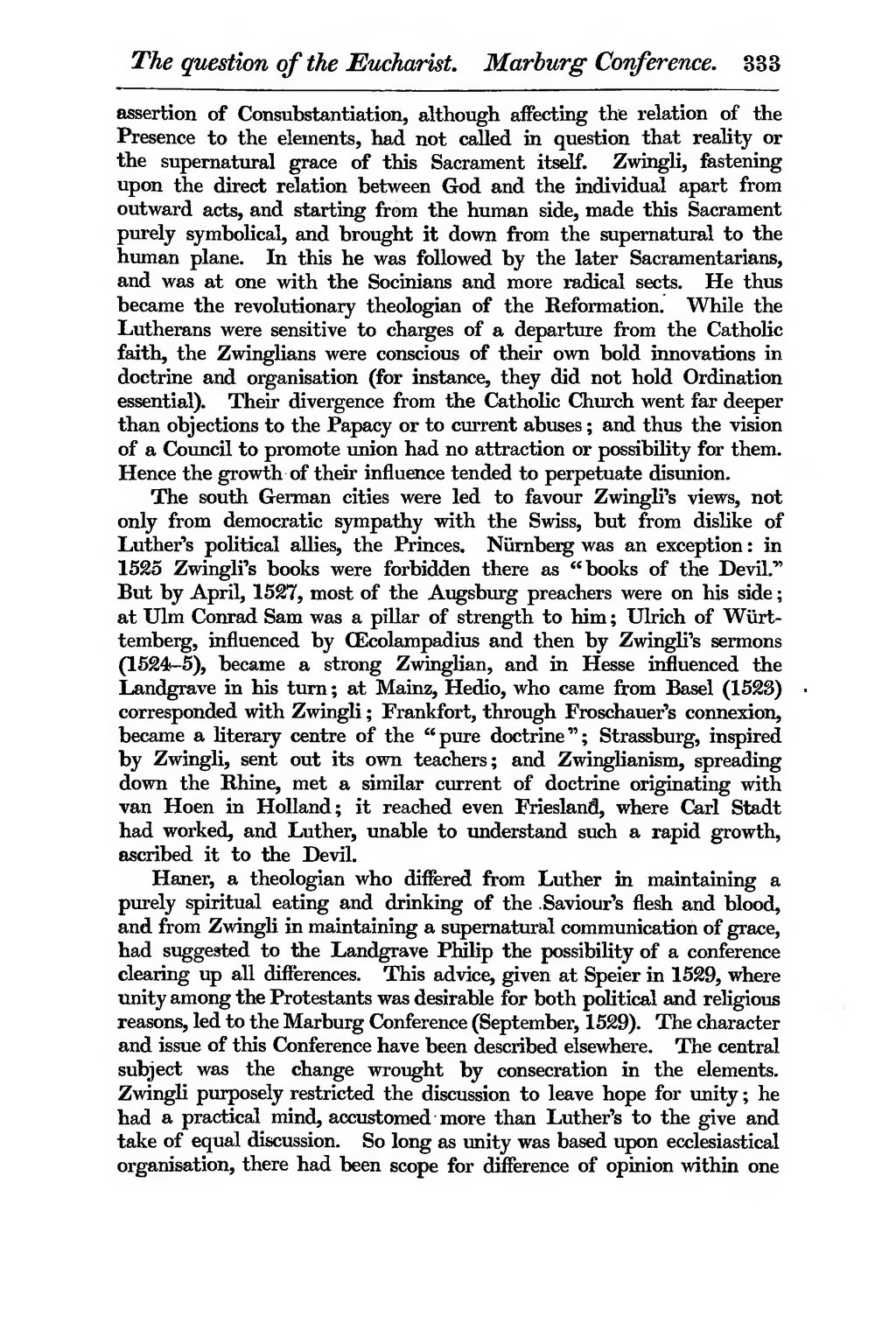assertion of Consubstantiation, although affecting the relation of the Presence to the elements, had not called in question that reality or the supernatural grace of this Sacrament itself. Zwingli, fastening upon the direct relation between God and the individual apart from outward acts, and starting from the human side, made this Sacrament purely symbolical, and brought it down from the supernatural to the human plane. In this he was followed by the later Sacramentarians, and was at one with the Socinians and more radical sects. He thus became the revolutionary theologian of the Reformation. While the Lutherans wjere sensitive to charges of a departure from the Catholic faith, the Zwinglians were conscious of their own bold innovations in doctrine and organisation (for instance, they did not hold Ordination essential). Their divergence from the Catholic Church went far deeper than objections to the Papacy or to current abuses; and thus the vision of a Council to promote union had no attraction or possibility for them. Hence the growth of their influence tended to perpetuate disunion.
The south German cities were led to favour Zwingli's views, not only from democratic sympathy with the Swiss, but from dislike of Luther's political allies, the Princes. Nürnberg was an exception: in 1525 Zwingli's books were forbidden there as "books of the Devil." But by April, 1527, most of the Augsburg preachers were on his side; at Ulm Conrad Sam was a pillar of strength to him; Ulrich of Württemberg, influenced by QEcolampadius and then by Zwingli's sermons (1524-5), became a strong Zwinglian, and in Hesse influenced the Landgrave in his turn; at Mainz, Hedio, who came from Basel (1523) corresponded with Zwingli; Frankfort, through Froschauer's connexion, became a literary centre of the " pure doctrine"; Strassburg, inspired by Zwingli, sent out its own teachers; and Zwinglianism, spreading down the Rhine, met a similar current of doctrine originating with van Hoen in Holland; it reached even Friesland, where Carl Stadt had worked, and Luther, unable to understand such a rapid growth, ascribed it to the Devil.
Haner, a theologian who differed from Luther in maintaining a purely spiritual eating and drinking of the Saviour's flesh and blood, and from Zwingli in maintaining a supernatural communication of grace, had suggested to the Landgrave Philip the possibility of a conference clearing up all differences. This advice, given at Speier in 1529, where unity among the Protestants was desirable for both political and religious reasons, led to the Marburg Conference (September, 1529). The character and issue of this Conference have been described elsewhere. The central subject was the change wrought by consecration in the elements. Zwingli purposely restricted the discussion to leave hope for unity; he had a practical mind, accustomed more than Luther's to the give and take of equal discussion. So long as unity was based upon ecclesiastical organisation, there had been scope for difference of opinion within one
